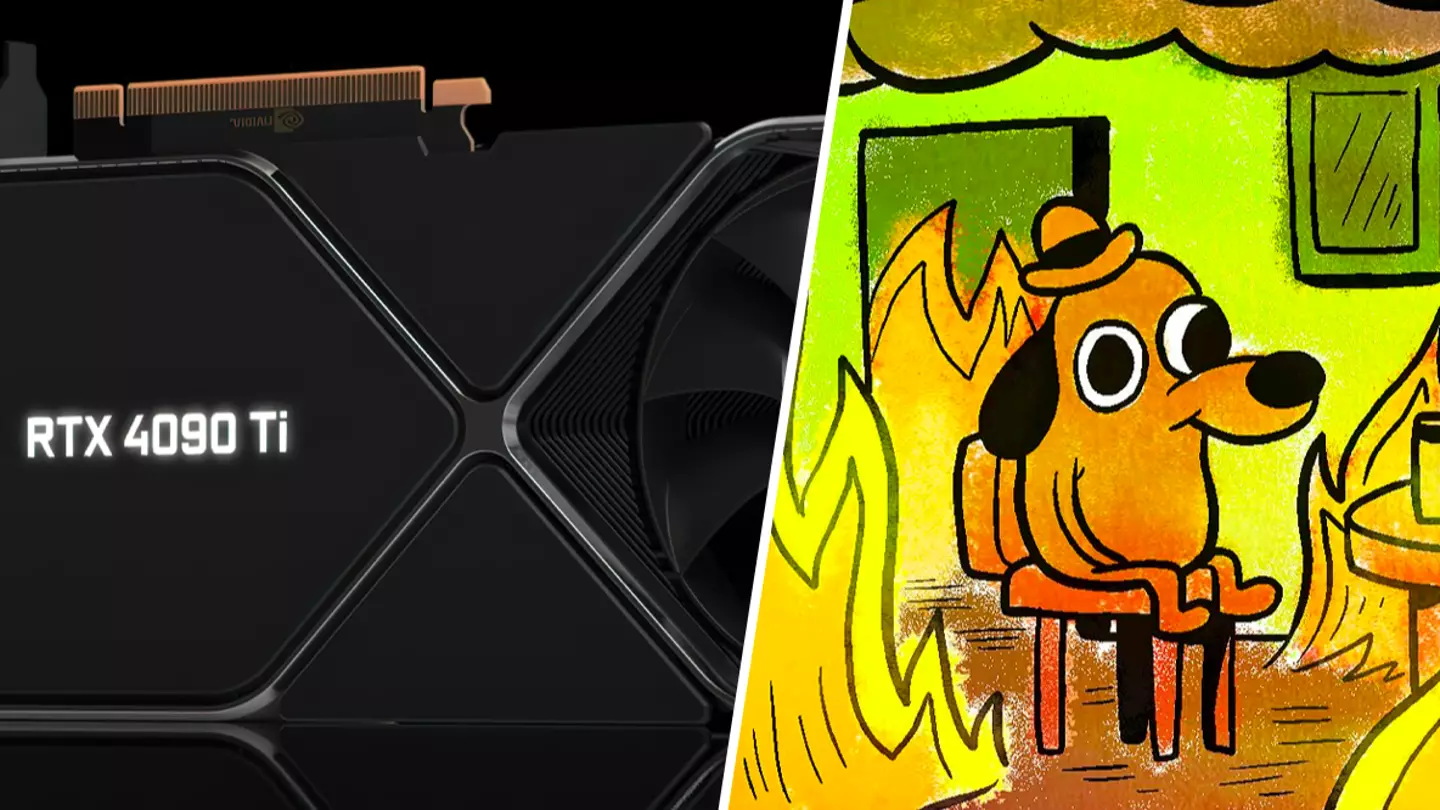
Unfortunately, it's looking like the Nvidia RTX 4090 Ti graphics card is cancelled for the time being owing to the fact that it is melting itself.
The sheer power that the Nvidia RTX family of graphics cards has... it's on a par with the alchemists of yore. I am but a villein in their presence and it is beyond me that anyone would ever need to count above the number 10, let alone 4090. Yet, as per this scoop from Moore's Law Is Dead, the RTX 4090 Ti is problematic - and potentially dangerous.
Here's what Cyberpunk 2077 looks like on PC with its utterly gorgeous ray tracing setting switched on. It's nearly enough for me to forget the whole "dystopia" thing.
While the 4090 card is reviewing well, with praise for its rasterisation, power management and efficiency when it comes to ray tracing, the 4090 Ti is "not coming out any time soon." Moore's Law Is Dead's source said that the card is currently “tripping breakers, melting power supplies, and sometimes melting itself” in the lab. That's a 600W to 700W card, for your information, and the size of the product was triggering headaches too. "It was at least four slots thick and had two 16-pin connectors," continued the source. "It was so big that we usually mounted the motherboard to the side of the card instead of seating the card in a motherboard."
It is lucky that the card didn't make it to market before these issues were identified, as this would have been damaging for Nvidia's image and much more importantly, could have caused costly and significant accidents for users. Time is on its side, though, and Nvidia will be able to iron out this design flaw for good.
Topics: Nvidia